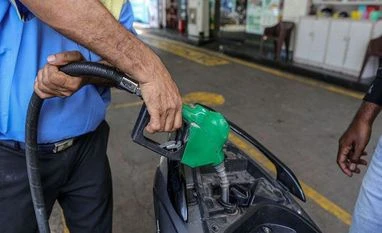Twesh Mishra, Arindam Majumder & Shine Jacob
India aims to sell only blended petrol with 20 per cent ethanol (E20) from 2025-26. According to officials in the know, all new vehicles sold in the country will also need to be E20 compliant from 2025 onward. This move may force automobile manufactures to reconfigure their existing petrol vehicle offerings to operate using the blended fuel.
Speaking to journalists a day after the Union Cabinet hiked the ethanol procurement price, Petroleum Secretary, Tarun Kapoor said, “The target is to only sell E20 petrol across the country from 2025 onward. E20 blended petrol will be introduced from 2023. In the transitional period, both E20 and E10 (petrol blended with 10 per cent ethanol) will be available but at different retail outlets (commonly called petrol pumps).”
“There will be no separate dispensing unit for E20 ethanol at a single retail outlet. The existing dispensing units will just start selling E20 ethanol,” he added.
Automakers said they are ready to be E20 compliant even as some expressed concerns.
India’s largest carmaker Maruti Suzuki which has more than 50 percent market share is already compliant to E10 norms and the automaker’s products will be E20 compliant by 2023.
“As far as the government is concerned they are looking to mandate E10 and E20 compliance. So we are in line with this thinking and we have supported this part of the discussion…Ethanol is going to be one big technology that we will be using in our products,” C V Raman, Chief Technical Officer, Maruti Suzuki India adding that the carmaker is planning to introduce flex fuel in its lineup. Along with petrol and CNG, flex fuel will be their third option on offer.
An executive at a foreign carmaker however raised concern that there can be problems over customer acceptability as impact of ethanol fuels on on-road vehicles is likely to result in increased fuel consumption and higher maintenance costs for vehicles which are not developed to run on 20 percent ethanol-blended fuel.
According to the petroleum secretary, the government also intends to ramp up sale of E100, or pure ethanol for running vehicles. “A separate dispensing station will need to be installed at petrol pumps for E100 since existing vehicles cannot run on it. The use of E100 as a primary fuel is being examined through a pilot project in Pune,” he said.
He said while automobile manufacturers are complaining that using E20 petrol could harm existing vehicles, there is no conclusive evidence about it yet. “There may be an impact on the fuel efficiency of a non-compliant vehicle after E20 roll out but studies are still on to decide whether there is any other adverse impact of the blended petrol,” he said.
A call to mandate sale of only E20 optimized vehicles will be taken by the Ministry of Road Transport and Highways. But the Petroleum Ministry is keen on ensuring that only E20 petrol will be available in the country from 2025. This is similar to the stand taken by the oil refineries when rolling out Bharat Stage VI fuels in the country, eventually forcing automobile makers to comply with stricter emission norms.
India’s oil marketing companies (OMCs) are target a 10 per cent ethanol blending in petrol by the end of ensuing ethanol supply year (ESY – period from December to November) 2021-22, and 20 per cent by ESY 2025-26. As a step in this direction, Prime Minister Narendra Modi had released a report on “Roadmap for ethanol blending in India 2020-25” on World Environment Day –June 5, 2021.
To make this possible, the centre is also focusing on ramping up ethanol supplies. According to an official statement, OMCs have contracted over 350 crore litre of ethanol in ongoing ESY 2020-21, up from 38 crore litre during ESY 2013-14. The goal is to achieve 1000 crore litres of ethanol procurement for meeting the E20 blending target.
Two-wheeler manufacturers like Bajaj Auto, TVS and Toyota have already agreed to come up with engines that can work on flex fuel engines, which will help the vehicle to adapt to a higher percentage of blended ethanol. TVS Motor Company and Mahindra & Mahindra (M&M) have already initiated pilot projects in Pune. According to sources, TVS is credited with launching the first-ethanol powered motorcycle called TVS Apache RTR 200 Fi E100 in 2019.
The vehicle manufacturers need to handhold vendors to develop ethanol compatible parts, optimize engine for higher ethanol blends and conduct durability studies on engines and field trials before introducing E20 compliant vehicles, according to a Niti Ayog report. Interestingly, a major cause of concern for the consumers will be a drop in fuel efficiency of 6 per cent with E20 due to lower calorific value of the blended fuel, it said.
Unlock 30+ premium stories daily hand-picked by our editors, across devices on browser and app.
Pick your favourite companies, get a daily email with all news updates on them.
Full access to our intuitive epaper - clip, save, share articles from any device; newspaper archives from 2006.
Preferential invites to Business Standard events.
Curated newsletters on markets, personal finance, policy & politics, start-ups, technology, and more.



)